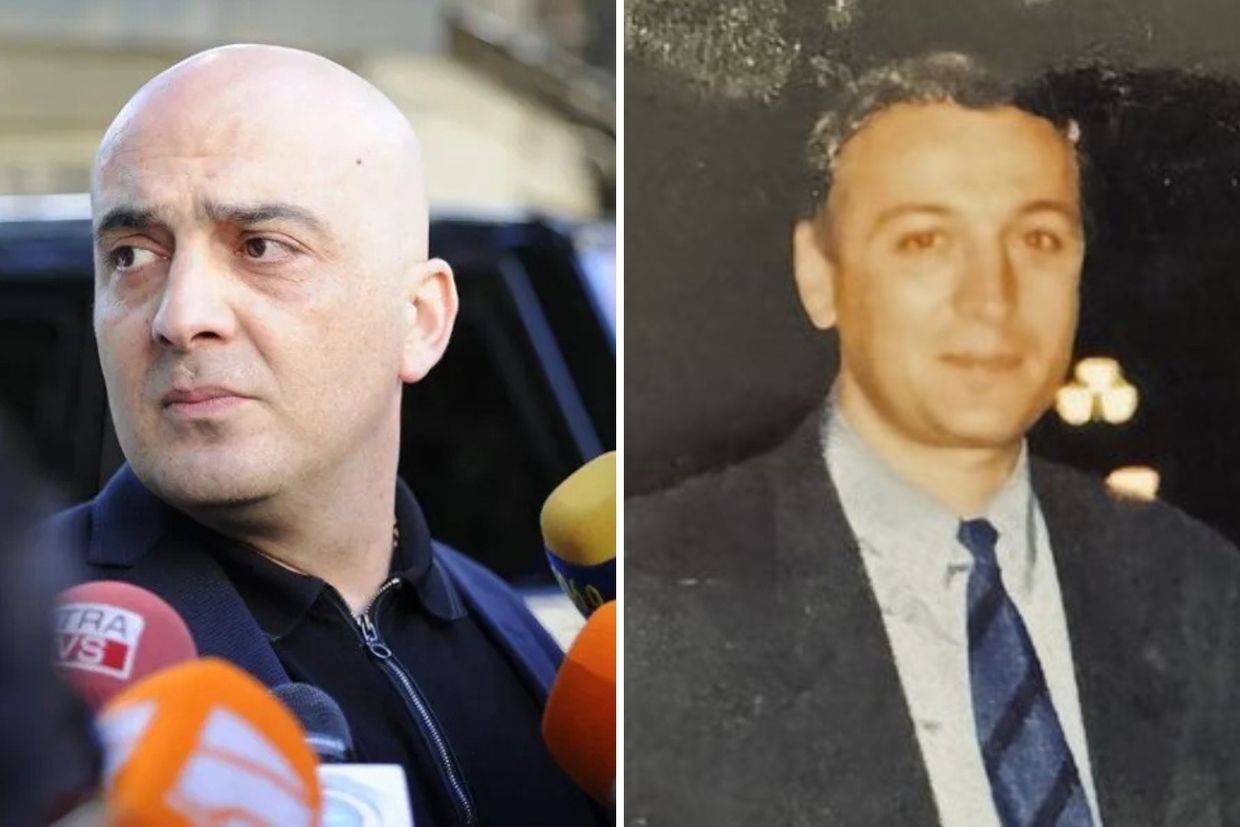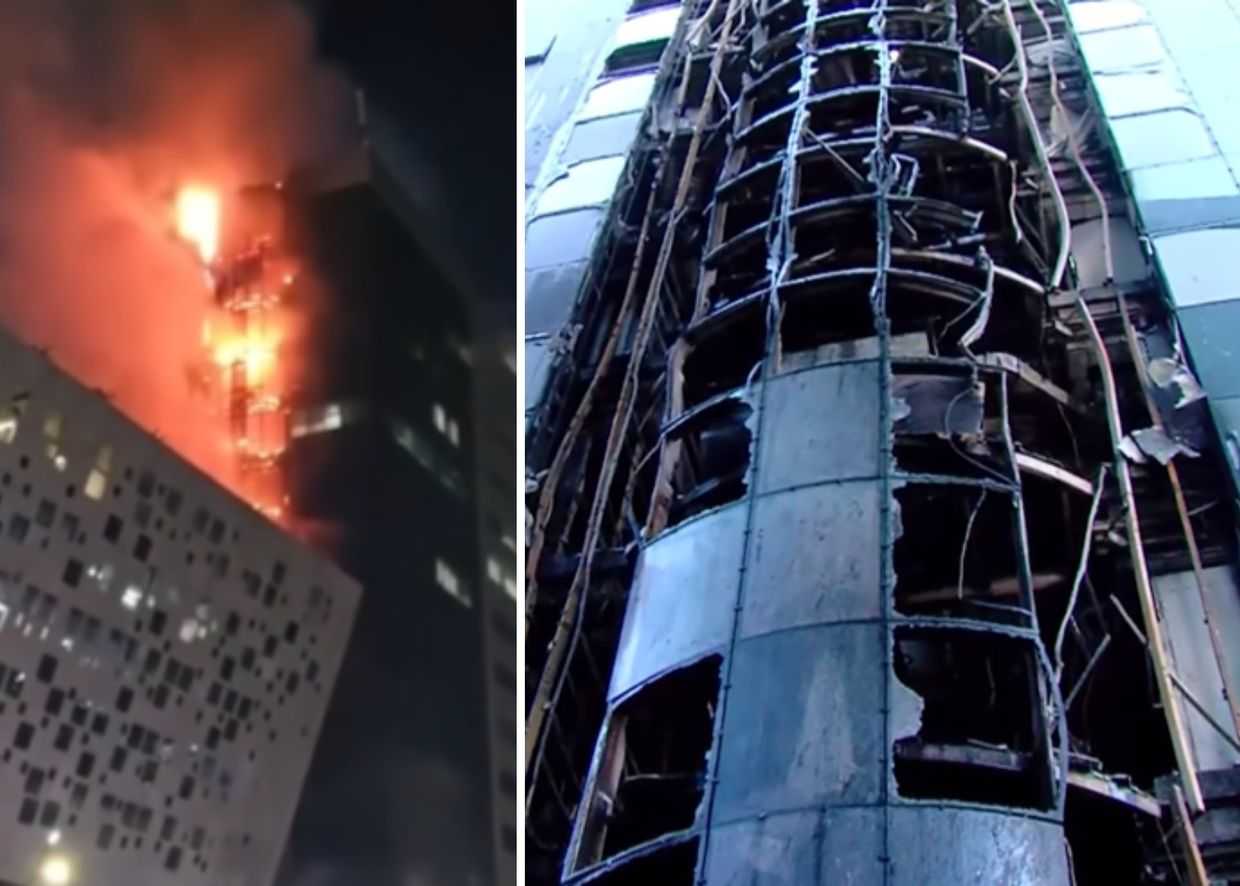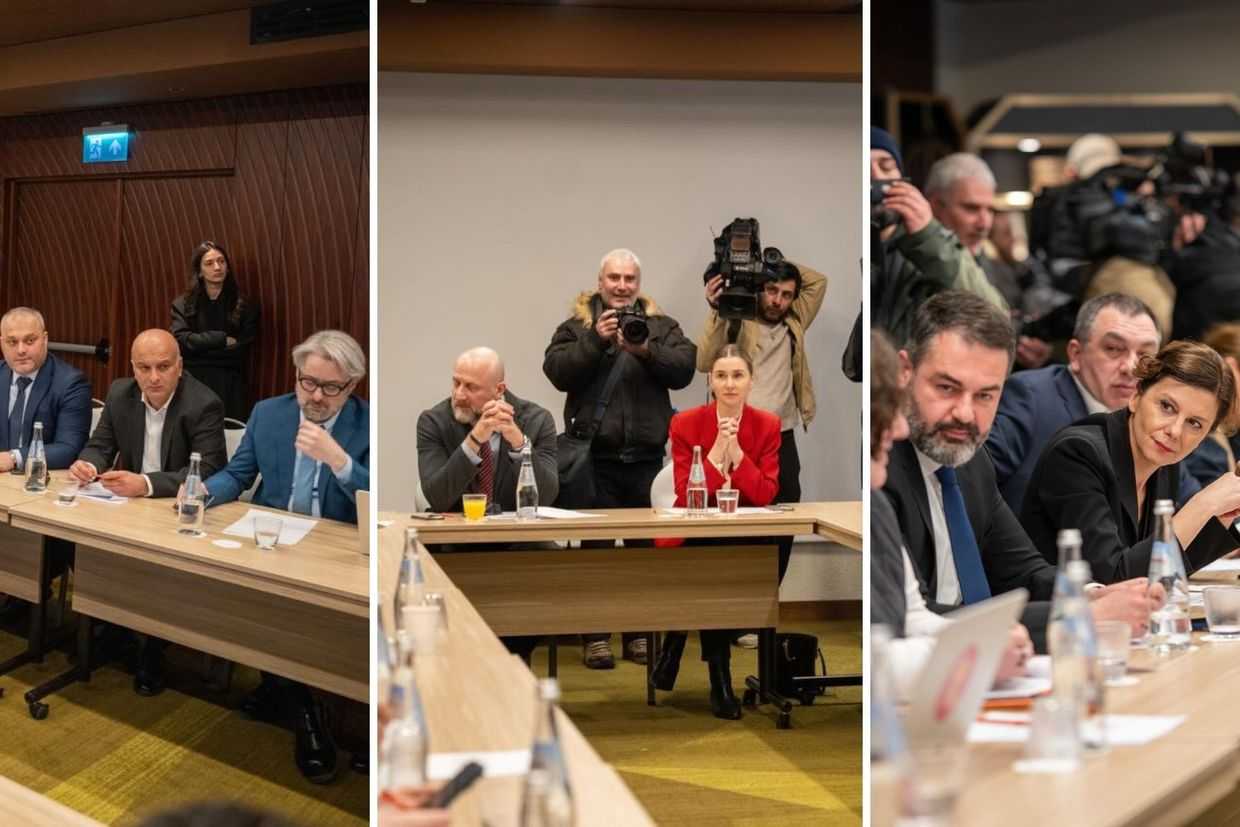
Georgian investigators have linked the country’s former Prosecutor General and the grandson of a slain Russian crime boss to a March killing in Tbilisi, believed to be tied to the post-Soviet mafia.
A detective revealed the details in court on Wednesday, further complicating the case.
The murder took place in Tbilisi’s upscale Vake district, on one of the city’s main streets, Chavchavadze Avenue, on the evening of 14 March.
The victim was 61-year-old Levan Jangveladze, who, according to local media, was the brother of Merab Jangveladze, also known as Merab Sukhumsky — an influential member of the so-called thieves-in-law, a term for the network of mafia in the post-Soviet world.
Five months later, in August, the Interior Ministry announced several arrests, including businessperson Giorgi Mikadze, in connection with the killing, saying he had ordered Jangveladze’s murder over ‘various business-related issues’. Police said he acted with his brother, Davit Mikadze, who is outside Georgia.
According to the investigation, while preparing the murder, the brothers contacted another person, identified as Giorgi Jokhadze by local media, and asked him to find someone to carry out the murder. The task ultimately fell to a member of Jokhadze’s security team, identified as Gela Udzilauri.
However, statements made by Detective Robiko Gogiashvili at Udzilauri’s trial in Tbilisi City Court on Wednesday expanded the case’s potential scope, introducing at least two new figures:
- Otar Partskhaladze, who holds Russian citizenship, briefly served as Georgia’s general prosecutor in late-2013 and has faced past accusations of violence and extortion linked to Georgian Dream founder Bidzina Ivanishvili. In 2023, the US sanctioned him for ties to Russia’s consulting sector and its ‘malign influence’ on Georgia.
- Irakli Usoyan, grandson of Aslan Usoyan (Ded Hasan) — an influential thief-in-law born in Soviet Georgia and killed in Moscow in 2013 at the age of 75.
According to the version presented by the detective Gogiashvili and later reported by IPN, the original initiator of the killing was Ded Hasan’s grandson Irakli Usoyan, who contracted Partskhaladze and the Mikadze brothers to carry it out for $5 million. Earlier, the opposition-leaning TV Pirveli had reported that the Mikadze brothers were associates of Partskhaladze.
Gogiashvili’s testimony did not reveal Usoyan’s motivations but noted that Partskhaladze and the Mikadze brothers had a ‘tense relationship’ with Jangveladze over the export of cigarettes and alcohol to Russia. However, as Gogiashvili mentioned, the Mikadze brothers had not dared to directly act against Jangveladze before, due to his brother Merab’s authority.
The detective said his testimony was based on intelligence, without naming sources.
There is also no indication that Partskhaladze has been charged in connection with the case.
Other defendants and Jangveladze’s influence
In total, five people have been arrested in connection with the case:
Giorgi Mikadze, accused of organising the murder; Udzilauri, charged with murder and illegal possession of a weapon; Sandro Tsivtsivadze, from whom, according to investigators, the weapon was obtained, charged with illegal arms transfer; Giorgi Kachkachishvili, accused of group illegal acquisition and possession of a weapon; and Mamuka Baghdavadze, a relative of Jokhadze, charged with covering up a serious crime and giving false testimony.
Another person, Lasha Maisuradze, was arrested in September for allegedly threatening one of the lawyers linked to the case.
Meanwhile, charges have been filed in absentia against Davit Mikadze and Jokhadze, who are currently abroad, and search warrants have been issued for them.
TV Pirveli reported that Jangveladze, who was a businessperson and lived in Moscow, had come to Tbilisi to attend the wake of a friend and business partner.
Security camera footage shows the killer opening fire on Jangveladze after he left the residential building where his late partner was reportedly lying in repose. One more person, reportedly Jangveladze’s driver, was wounded in the shooting and taken to a clinic.
The killing received extensive coverage in local media, often referring to Jangveladze as the brother of an influential thief-in-law. However, various sources said the victim himself held significant influence in the criminal world.
Historian and transnational crime expert Mark Galeotti stated that Levan Jangveladze was, 'in some ways, the kind of grey cardinal behind Merab [Jangveladze]’.
According to him, the slain Jangveladze was not formally a thief-in-law, since he ‘hadn’t gone through the crowning process’ and therefore didn’t have to follow the strict codes of the mafia, but this also gave him more freedom to act in certain ways.
‘It did mean that essentially Levan could therefore do all the things Merab couldn’t do that were otherwise prescribed by the code. So that included doing deals with the Russian intelligence community, running business, and in particular playing a crucial role in organising contract killings for his brother’, Galeotti said in his podcast ‘In Moscow’s Shadows’ in April.











